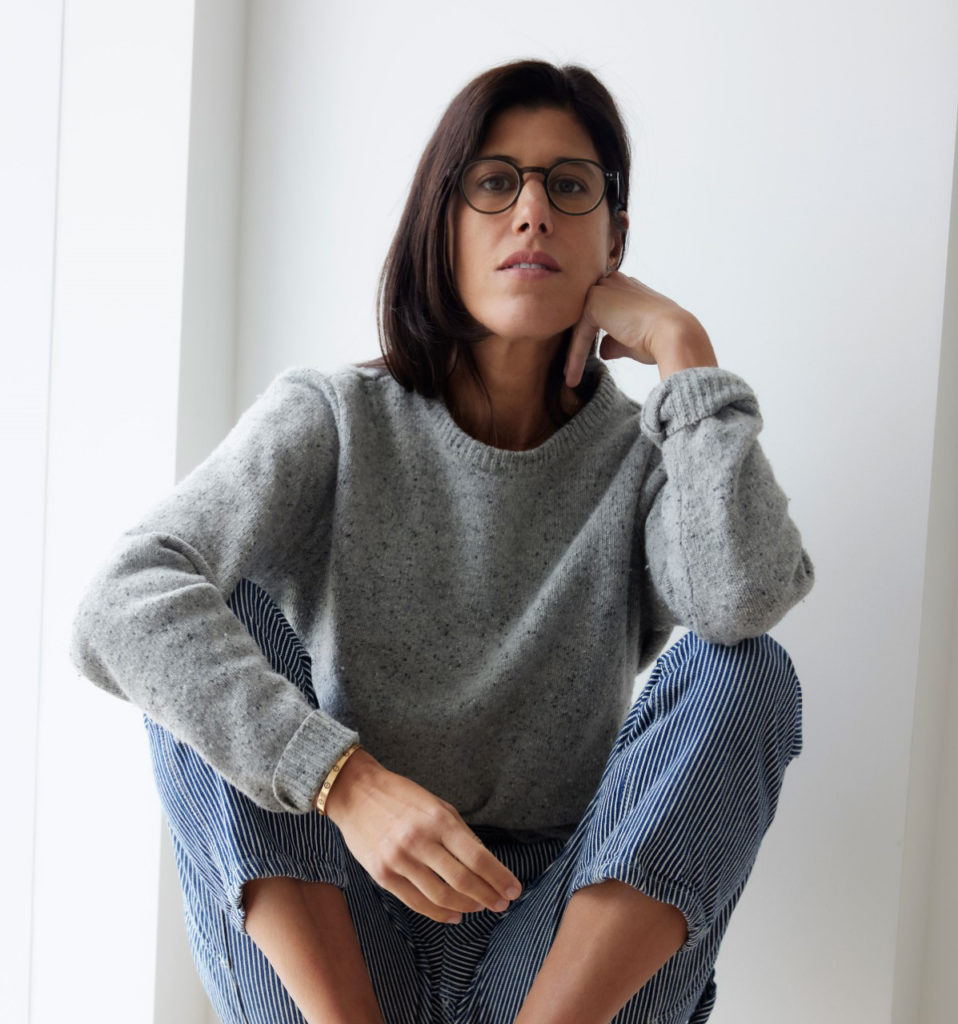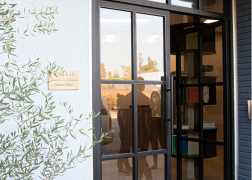What inspired you to start exploring themes like grief, shock, and self-doubt in your work?
I suppose the inspiration to explore all of these themes came from my own personal experiences, particularly losing my mother. I remember feeling as if my grief would just swallow me up. The exploration of it helped me understand and accept what I was going through.How did losing your mother to cancer change your perspective about loss—and about resilience? What did it teach you about yourself?
Up until losing my mom, loss had been somewhat abstract. I could only imagine the feelings that might show up. It wasn’t until she was sick, and then gone, that I fully grasped the finality of the loss. The overwhelming feelings of guilt, pain, sadness, regret were constant. But, with time I learned to allow these feelings to come and go without judgement. I learned there was no way to rush through. Allowing the grief to linger (as it will anyway) taught me how to have patience and compassion with myself, and eventually accept the loss.You’ve spoken about the importance of learning how to carry grief and learning how to respect it. Can you elaborate on that a bit?
Early on it might feel easier to shut your eyes to it all, to ignore or rush through the pain. With time, I recognized that grief won’t ever truly go away. You have to go through it, and also learn to grow around it. Your relationship with grief will change. Sometimes it will still be painful, but sometimes it will be your reminder that you loved and were loved.“Grief won’t ever truly go away. Your relationship with grief will change. Sometimes it will still be painful, but sometimes it will be your reminder that you loved and were loved.”
The beauty of your books, I Used To Have A Plan and Hello Grief, are that the lessons can be applied to so many things—death, infertility, sobriety, just to name a few. How does menopause fit into all of this for you? Is it also a form of loss / change / rebirth?
Absolutely, all of those things. Reaching menopause was overwhelming for me. Suddenly, and what felt like out of nowhere, I had these crazy mood changes—irritability, sadness, lack of motivation, aggressiveness, stress, difficulty concentrating, and depression were but a few. I had intense hot flashes making it impossible to get a good night’s rest, which just added fuel to the fire. I needed to slow down and accept that this change in my body and emotional state also needed my patience and compassion.
Why do you think self-empathy is so important to our wellbeing, and what are some simple things we can do every day to practice more of it?
Loving yourself, caring for yourself, and understanding your own needs is so important. Self-empathy helps build our confidence and inner strength. Once we have that we then can open ourselves up to connection and purpose. Simple things I like to do every day are:
- Comfort my body by eating nourishing and healthy food.
- Hug myself—there is a power to touch.
- Acknowledge what you’re doing right. So often we only focus on what’s wrong—try spending a few moments recognizing what’s right.

You’re also trained as an end-of-life doula. What exactly does that skill set comprise, and how does one go about learning and developing it?
It starts with compassion and empathy. I trained with The Doula Program to Accompany and Comfort and continue to develop my skills through volunteering once a week at Bellevue Hospital in New York.What has the experience of training as an end-of-life doula taught you about life and death that you didn’t know before?
When I began my training as an end of life doula, I wanted to help others. What I didn’t expect was how it would help me appreciate living. Prior to my training I avoided thinking about death and dying; it was just this fearful thing. However, through my work I have become open and aware of death. In turn I choose to live my life with an understanding that every single day is a gift. It has taught me to live in the present.What words of advice do you have for people who are struggling with grief, sadness, or uncertainty of their own? What do you think is the biggest misconception about these things?
Allow yourself the time and space you need without expectation. There is a misconception that grief has a timeline and that there is a certain way to grieve. But there isn’t. Everyone grieves at their own pace and that is ok.“Through my work as an end of life doula I have become open and aware of death. In turn I choose to live my life with an understanding that every single day is a gift. It has taught me to live in the present.”







